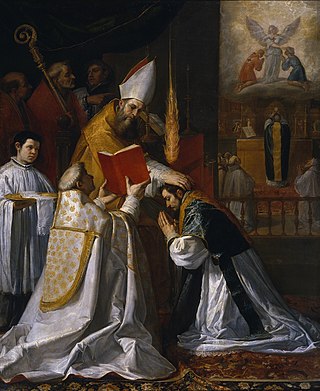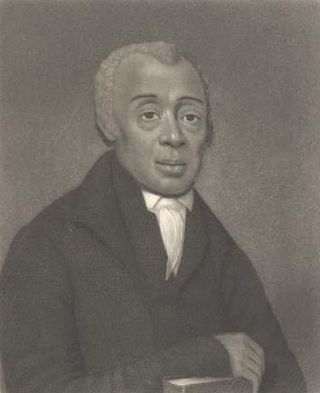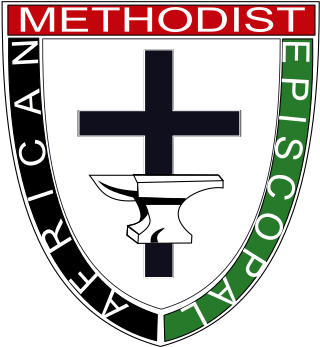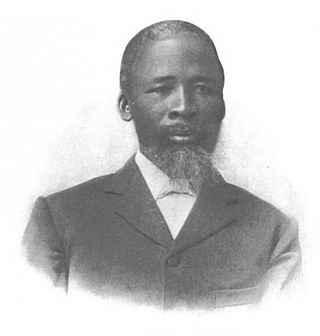
In certain Christian denominations, holy orders are the ordained ministries of bishop, priest (presbyter), and deacon, and the sacrament or rite by which candidates are ordained to those orders. Churches recognizing these orders include the Catholic Church, the Eastern Orthodox, Oriental Orthodox, Anglican, Assyrian, Old Catholic, Independent Catholic and some Lutheran churches. Except for Lutherans and some Anglicans, these churches regard ordination as a sacrament.

A deacon is a member of the diaconate, an office in Christian churches that is generally associated with service of some kind, but which varies among theological and denominational traditions.
The Methodist Episcopal Church (MEC) was the oldest and largest Methodist denomination in the United States from its founding in 1784 until 1939. It was also the first religious denomination in the US to organize itself nationally. In 1939, the MEC reunited with two breakaway Methodist denominations to form the Methodist Church. In 1968, the Methodist Church merged with the Evangelical United Brethren Church to form the United Methodist Church.

Richard Allen was a minister, educator, writer, and one of the United States' most active and influential black leaders. In 1794, he founded the African Methodist Episcopal Church (AME), the first independent Black denomination in the United States. He opened his first AME church in 1794 in Philadelphia.

Defrocking, unfrocking, degradation, or laicization of clergy is the removal of their rights to exercise the functions of the ordained ministry. It may be grounded on criminal convictions, disciplinary problems, or disagreements over doctrine or dogma, but may also be done at their request for personal reasons, such as running for civil office, taking over a family business, declining health or old age, desire to marry against the rules for clergy in a particular church, or an unresolved dispute. The form of the procedure varies according to the Christian denomination concerned.

The African Methodist Episcopal Church, usually called the AME Church or AME, is a Methodist denomination based in the United States. It adheres to Wesleyan–Arminian theology and has a connexional polity. It cooperates with other Methodist bodies through the World Methodist Council and Wesleyan Holiness Connection.

The African Methodist Episcopal Zion Church, or the AME Zion Church (AMEZ) is a historically African-American Christian denomination based in the United States. It was officially formed in 1821 in New York City, but operated for a number of years before then. The African Methodist Episcopal Zion Church adheres to Wesleyan-Arminian theology.
The Ethiopian movement is a religious movement that began in southern Africa towards the end of the 19th and early 20th century, when two groups broke away from the Anglican and Methodist churches. One of the main reasons for breaking away was the growing idea that Africa had little to no history before the European colonisation of the continent, leaving many Africans upset at the prospect of their heritage and culture being erased through colonialism.
The Anglican Church of Southern Africa, known until 2006 as the Church of the Province of Southern Africa, is the province of the Anglican Communion in the southern part of Africa. The church has twenty-five dioceses, of which twenty-one are located in South Africa, and one each in Eswatini, Lesotho, Namibia and Saint Helena.

Ecclesiastical polity is the government of a church. There are local (congregational) forms of organization as well as denominational. A church's polity may describe its ministerial offices or an authority structure between churches. Polity relates closely to ecclesiology, the theological study of the church.

The Anglican ministry is both the leadership and agency of Christian service in the Anglican Communion. Ministry commonly refers to the office of ordained clergy: the threefold order of bishops, priests and deacons. More accurately, Anglican ministry includes many laypeople who devote themselves to the ministry of the church, either individually or in lower/assisting offices such as lector, acolyte, sub-deacon, Eucharistic minister, cantor, musicians, parish secretary or assistant, warden, vestry member, etc. Ultimately, all baptized members of the church are considered to partake in the ministry of the Body of Christ.

The Diocese of Namibia is part of the Anglican Church of Southern Africa, which is itself part of the Anglican Communion. The diocese, which covers the whole country of Namibia, was originally known as the Diocese of Damaraland. Most of the Anglicans in Namibia live in Ovamboland in the north of the country and speak the Oshikwanyama language.

The South African Council of Churches (SACC) is an interdenominational forum in South Africa. It was a prominent anti-apartheid organisation during the years of apartheid in South Africa. Its leaders have included Desmond Tutu, Beyers Naudé and Frank Chikane. It is a member of the Fellowship of Christian Councils in Southern Africa.
The Communion of Evangelical Episcopal Churches (CEEC) is a Christian convergence communion established in 1995 within the United States of America. With a large international presence in five provinces and seven U.S. dioceses, most of its churches and missions are spread throughout the Mid-Atlantic and Mid-West regions, and South Carolina; Florida and California; and India. The Communion of Evangelical Episcopal Churches is currently led by Bishop Quintin Moore as presiding bishop of the CEEC.
Onell Asiselo Soto was an Episcopal bishop residing in Miami, Florida. Prior to his retirement in 2002 he was appointed by Henry N. Parsley to serve as Assistant Bishop of the Episcopal Diocese of Alabama, beginning on August 1.
The Global Fellowship of Confessing Anglicans is a communion of conservative Anglican churches that formed in 2008 in response to ongoing theological disputes in the worldwide Anglican Communion. Conservative Anglicans met in 2008 at the Global Anglican Future Conference, creating the Jerusalem Declaration and establishing the Fellowship of Confessing Anglicans (FCA), which was rebranded as GAFCON in 2017.
The ordination of lesbian, gay, bisexual and/or transgender (LGBT) clergy who are open about their sexuality or gender identity; are sexually active if lesbian, gay, or bisexual; or are in committed same-sex relationships is a debated practice within some contemporary Christian denominations.

The history of Methodism in the United States dates back to the mid-18th century with the ministries of early Methodist preachers such as Laurence Coughlan and Robert Strawbridge. Following the American Revolution most of the Anglican clergy who had been in America came back to England. John Wesley, the founder of Methodism, sent Thomas Coke to America where he and Francis Asbury founded the Methodist Episcopal Church, which was to later establish itself as the largest denomination in America during the 19th century.

James Mata Dwane, priest and founder of the Order of Ethiopia.

The Province of Southern Africa is an autonomous province of the Anglican Catholic Church (ACC). It constitutes the Third Province of the Anglican Catholic Church and has dioceses in South Africa, Tanzania, and Zimbabwe. As a part of Continuing Anglicanism which formed from the Congress of St. Louis, it is traditionally catholic in liturgy and doctrine and uses the 1954 Book of Common Prayer and its authorised derivatives. While it was epsicopally reliant on the American part of the Anglican Catholic Church for many years, it is considered an African Independent Church.